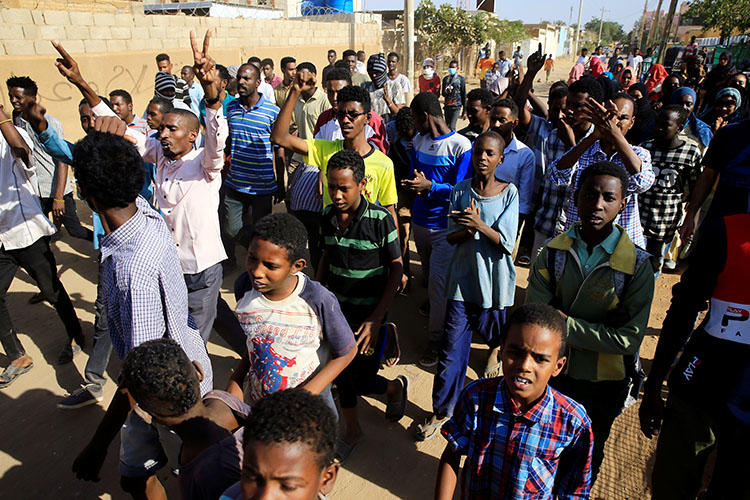Washington, D.C., January 28, 2019–The Committee to Protect Journalists today called on Sudanese authorities to release at least six journalists who have been detained in recent days after covering widespread antigovernment protests calling on President Omar al-Bashir to resign.
Today, the Sudanese Communist Party-owned daily Almidan said on its website and the local press freedom group Sudanese Journalists Network said in a statement published on its Facebook page that Sudan’s National Intelligence and Security Service (NISS) has arrested four Almidan journalists and editors since January 25, and stopped the outlet from distributing the print version of the paper seven times since the protests started in December. The moves came as Bashir, speaking at a meeting with Egyptian President Abdel Fattah el-Sisi in Cairo, blamed the media for exaggerating the size of the protests, according to news reports.
“President Bashir’s attempt to deflect the public’s anger by smearing Sudan’s brave journalists is both futile and shameful,” said CPJ Middle East and North Africa Program Coordinator Sherif Mansour. “Rounding up more journalists won’t help authorities find a solution to the country’s ongoing unrest.”
Almidan said the arrested journalists were Tariq Ali, its correspondent in Kosti city south of Khartoum, who was detained on January 25, and editors Iman Osman, Musab Mohamed, and Osama Hassan from its Khartoum office, who were detained on January 26, according to statements published by several local media and news websites.
Yesterday, the authorities also arrested freelance reporters Adam Mahdi in Nyala, a city southwest of Khartoum, and Amin Sanada in Port Sudan, a city northeast of Khartoum, Almidan and the Sudanese Journalists Network reported.
The Sudanese Communist Party–a main opposition party–held a press conference on January 23 in which the party’s leader, Ali Al-Kanin, said the NISS had stopped the party from distributing the print version of Almidan seven times since the protests started. The most recent print issue of Almidan available on its website is from January 24, according to a CPJ review of the website; in that issue, the daily devoted significant coverage to the protests, including two pages of photos and names of activists arrested throughout the country.
All the detained journalists and editors have been covering the protests, Abdel Qader, a Khartoum-based journalist and press freedom advocate, told CPJ. Ali specifically reported on teachers’ strikes and labor issues for Almidan, including during the protests that started in December, according to a CPJ review of his writing. On January 8, Osman wrote an editorial criticizing the government’s response to the protests and calling for the release of her colleagues Ghurashi Awad and Kamal Karrar, who remain in detention, according to a CPJ review of her columns.
CPJ was unable to determine if any of the journalists have been formally charged. The NISS did not immediately respond to CPJ’s request for comment sent via email.
Since the protests began, the Sudanese authorities have attempted to stifle news coverage and disrupt access to the internet and social media networks, CPJ has documented. Almidan columnists Awad and Karrar were arrested along with other columnists by the security services in Khartoum after criticizing the government’s response to the protests in late December and early January, CPJ documented at the time. Since then, the authorities revoked the credentials of at least six journalists working for international news outlets.
